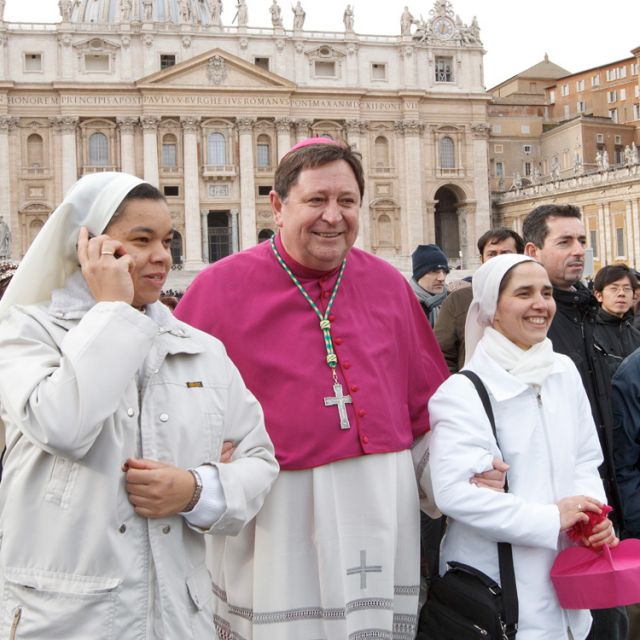He said the question is rather, why aren't resources being shared among different religious institutes?
One example, the Brazilian prelate said, would be a religious order that has significant financial assets earmarked for caring for and supporting its members in their old age.
He asked whether this was the true aim of such funds and whether the money could be given to help another institute that was struggling or in need.
"Why don't we know how to say 'We will put our assets at the disposal of many others'?" he asked.
The cardinal-designate said he thinks people do not believe enough in God's providence -- that the Lord will provide.
"We've taken on a consumerist point of view a bit," he said, noting how sometimes he has had to help communities overcome divisions over the institution's assets and how he has found attitudes that were "not correct."
He said the Vatican congregation he heads was looking into a phenomenon common in the United States, Canada and Australia where many religious "are organizing themselves in 'corporations'" in order to have "more security, efficiency and cost-savings," he said.
"We are tracking this phenomenon, but we still don't know well how it will evolve because it is something new," he said.


